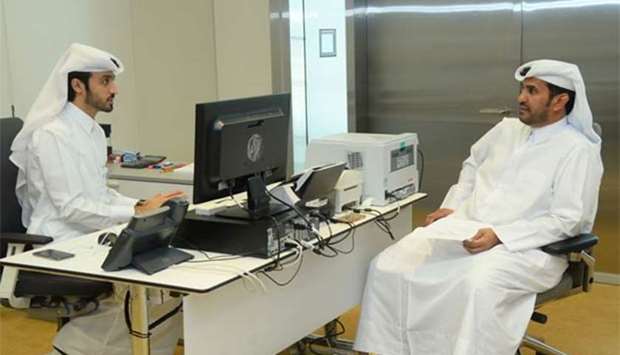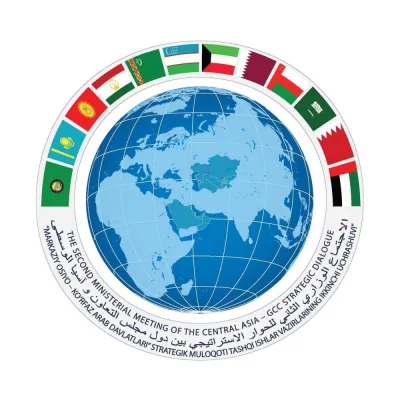For Qataris affected by the diplomatic crisis, the reality of politics is stark: families divided, assets frozen and dreams put on hold.
Sara, a 29-year-old Qatari, had been poised to start her senior year in business school in Dubai when on June 5, a bloc of Arab states led by Saudi Arabia abruptly cut ties with Qatar. "We were suddenly told that we were no longer permitted to attend classes and had to go back to Doha," she said.
The blockading countries asked all Qataris to leave their territories within two weeks, recalled their ambassadors and citizens from Doha and banned Qatari carriers from their ports and airspace. Since the blockade started, Qatari authorities have committed schools and universities to enrolling repatriated students.
But for Sara and many like her, the crisis was personal. "When someone prevents you from studying, it destroys your dreams," she said. "One day, overnight, with no warning -- suddenly you're told 'you have to stay home, no school for you'."
As the standoff drags into its third month, the uncertainty is causing agony, particularly for families of mixed nationality. Sara, who did not want her surname revealed because she feared the consequences for her relatives elsewhere in the region, has an Emirati mother and a Qatari father.
That is nothing unusual in a region where cross-border marriages are commonplace. The diplomatic spat has thrown such families into their own crises. "Half my family is in Dubai, in the UAE. I also have family in Bahrain," Sara said, choking back tears.
When her grandmother fell ill in Dubai, her mother was reluctant to travel to the UAE for fear she would not be allowed to return to her children in Qatar. States in the Saudi-led bloc have demanded that their citizens leave Qatar, but many have hesitated to do so -- especially those with families in the emirate. Some say they fear punishment by their own governments.
One Saudi mother, who has been based in Qatar for years and asked to remain anonymous, said she was terrified. She and her two adult daughters are caught between fear of their own government and uncertainty about their future in Qatar. "We feel trapped," she told AFP by phone. "We will have to renew our visas in a year. It's frightening -- we don't know what will happen."
She said she does not want to go back to Saudi Arabia, but fears that if she does not she will be blocked from accessing her late husband's Saudi pension, her only source of income. Her daughters, who work in Qatar, also want to stay. One has started losing her hair because of stress over the issue. All three declined to meet journalists in person for fear of the consequences.
Other Qataris, interviewed at a centre in Doha set up to support those affected by the crisis, fear for their assets in other countries.
Nour, who declined to be named in full, owns apartments in Dubai but can no longer access them. Ahmad and Abdullah own camels worth a fortune, but they are in Saudi Arabia where they are traditionally sent to graze. Many Qataris are in a state of shock.
Qatari civil servant Ahmad said political issues "should stay between leaders, people should not be involved".
Abdullah al-Marri, another government worker, said he was surprised at the turn of events. "I didn't think such things could happen between brothers," he said.
Compensation panel gets offers from law firms
The Compensation Claims Committee has received a number of offers from international and regional law firms, which are eager to provide their services and assist the panel in taking necessary legal action on the submitted claims, local Arabic daily Arrayah has reported.
The committee met a delegation from a UK law firm on Tuesday, which offered to help people affected by the blockade in pursuing their claims for damages and get adequate compensation, especially in cases pertaining to trade and commercial issues.
The committee received 25 applications for claims on Tuesday and nine calls enquiring about the procedures involved. A source said the committee would study offers made by the UK law firm and other international agencies and take a decision after thoroughly examining them.
Both Qataris and expatriates have been approaching the committee to submit claims about the losses they have incurred due to the unjust blockade. The committee is also helping them prepare the necessary documents in order to file proper complaints.
The blockading countries asked all Qataris to leave their territories within two weeks, recalled their ambassadors and citizens from Doha and banned Qatari carriers from their ports and airspace. Since the blockade started, Qatari authorities have committed schools and universities to enrolling repatriated students.
But for Sara and many like her, the crisis was personal. "When someone prevents you from studying, it destroys your dreams," she said. "One day, overnight, with no warning -- suddenly you're told 'you have to stay home, no school for you'."
As the standoff drags into its third month, the uncertainty is causing agony, particularly for families of mixed nationality. Sara, who did not want her surname revealed because she feared the consequences for her relatives elsewhere in the region, has an Emirati mother and a Qatari father.
That is nothing unusual in a region where cross-border marriages are commonplace. The diplomatic spat has thrown such families into their own crises. "Half my family is in Dubai, in the UAE. I also have family in Bahrain," Sara said, choking back tears.
When her grandmother fell ill in Dubai, her mother was reluctant to travel to the UAE for fear she would not be allowed to return to her children in Qatar. States in the Saudi-led bloc have demanded that their citizens leave Qatar, but many have hesitated to do so -- especially those with families in the emirate. Some say they fear punishment by their own governments.
One Saudi mother, who has been based in Qatar for years and asked to remain anonymous, said she was terrified. She and her two adult daughters are caught between fear of their own government and uncertainty about their future in Qatar. "We feel trapped," she told AFP by phone. "We will have to renew our visas in a year. It's frightening -- we don't know what will happen."
She said she does not want to go back to Saudi Arabia, but fears that if she does not she will be blocked from accessing her late husband's Saudi pension, her only source of income. Her daughters, who work in Qatar, also want to stay. One has started losing her hair because of stress over the issue. All three declined to meet journalists in person for fear of the consequences.
Other Qataris, interviewed at a centre in Doha set up to support those affected by the crisis, fear for their assets in other countries.
Nour, who declined to be named in full, owns apartments in Dubai but can no longer access them. Ahmad and Abdullah own camels worth a fortune, but they are in Saudi Arabia where they are traditionally sent to graze. Many Qataris are in a state of shock.
Qatari civil servant Ahmad said political issues "should stay between leaders, people should not be involved".
Abdullah al-Marri, another government worker, said he was surprised at the turn of events. "I didn't think such things could happen between brothers," he said.
Compensation panel gets offers from law firms
The Compensation Claims Committee has received a number of offers from international and regional law firms, which are eager to provide their services and assist the panel in taking necessary legal action on the submitted claims, local Arabic daily Arrayah has reported.
The committee met a delegation from a UK law firm on Tuesday, which offered to help people affected by the blockade in pursuing their claims for damages and get adequate compensation, especially in cases pertaining to trade and commercial issues.
The committee received 25 applications for claims on Tuesday and nine calls enquiring about the procedures involved. A source said the committee would study offers made by the UK law firm and other international agencies and take a decision after thoroughly examining them.
Both Qataris and expatriates have been approaching the committee to submit claims about the losses they have incurred due to the unjust blockade. The committee is also helping them prepare the necessary documents in order to file proper complaints.



